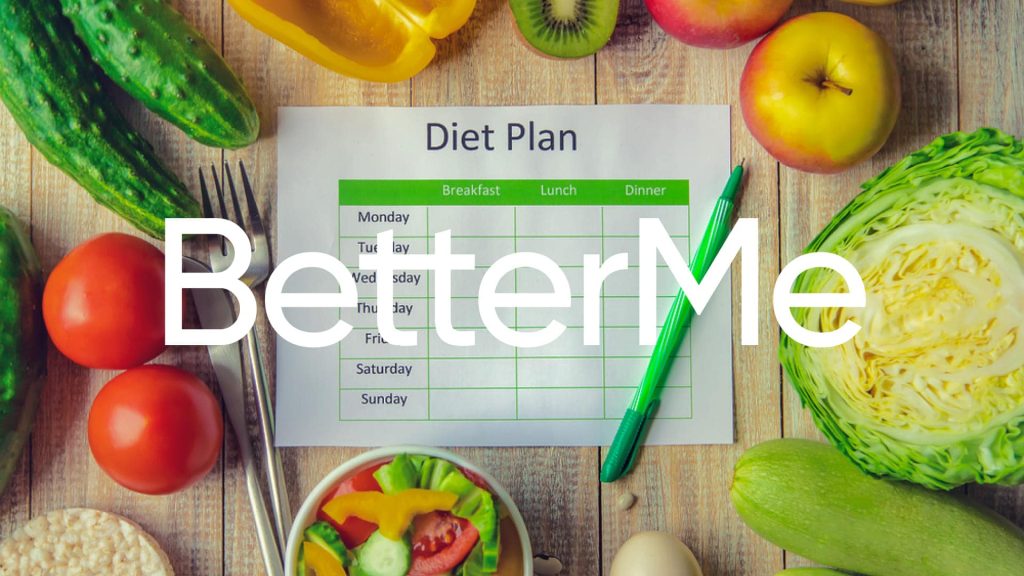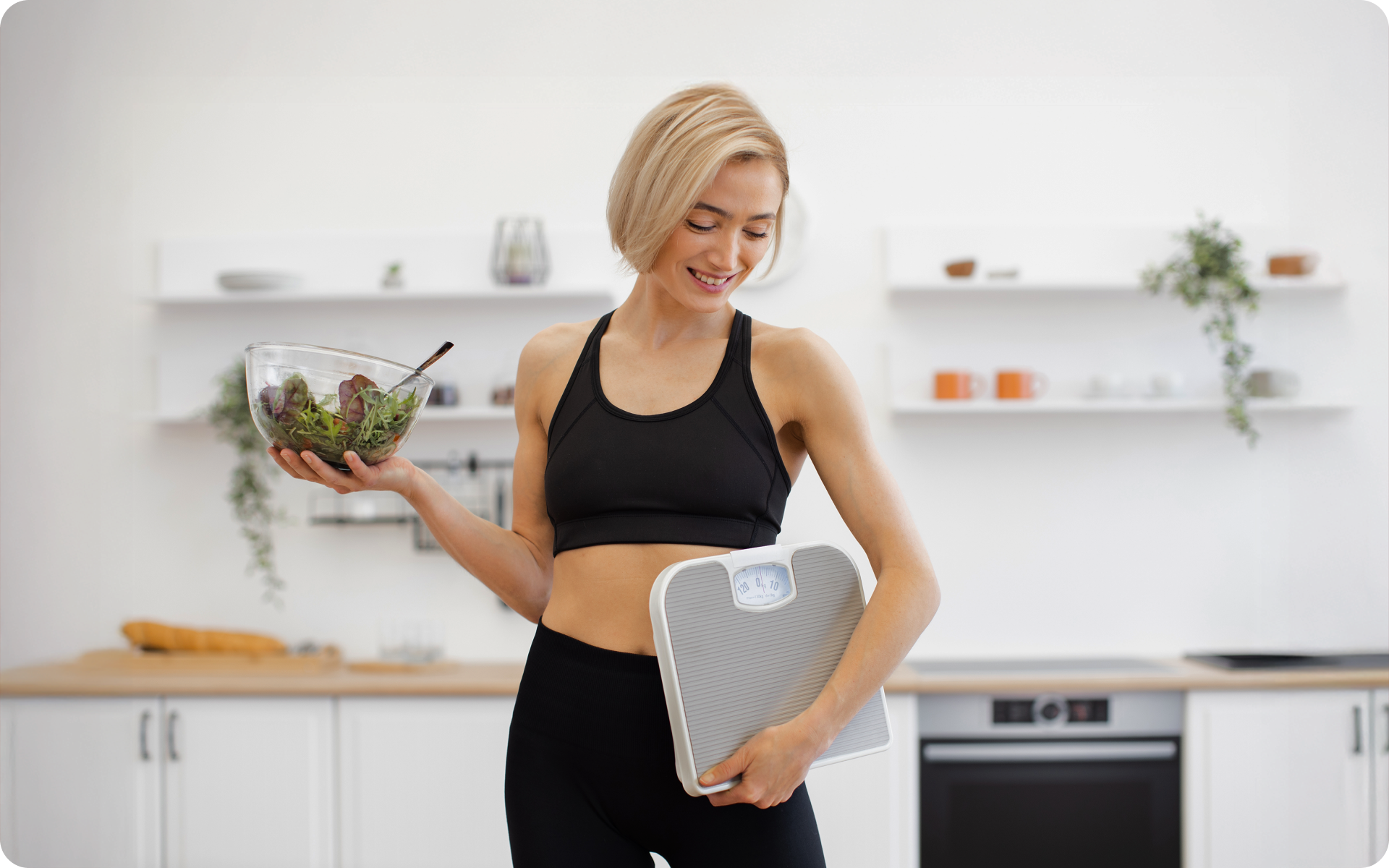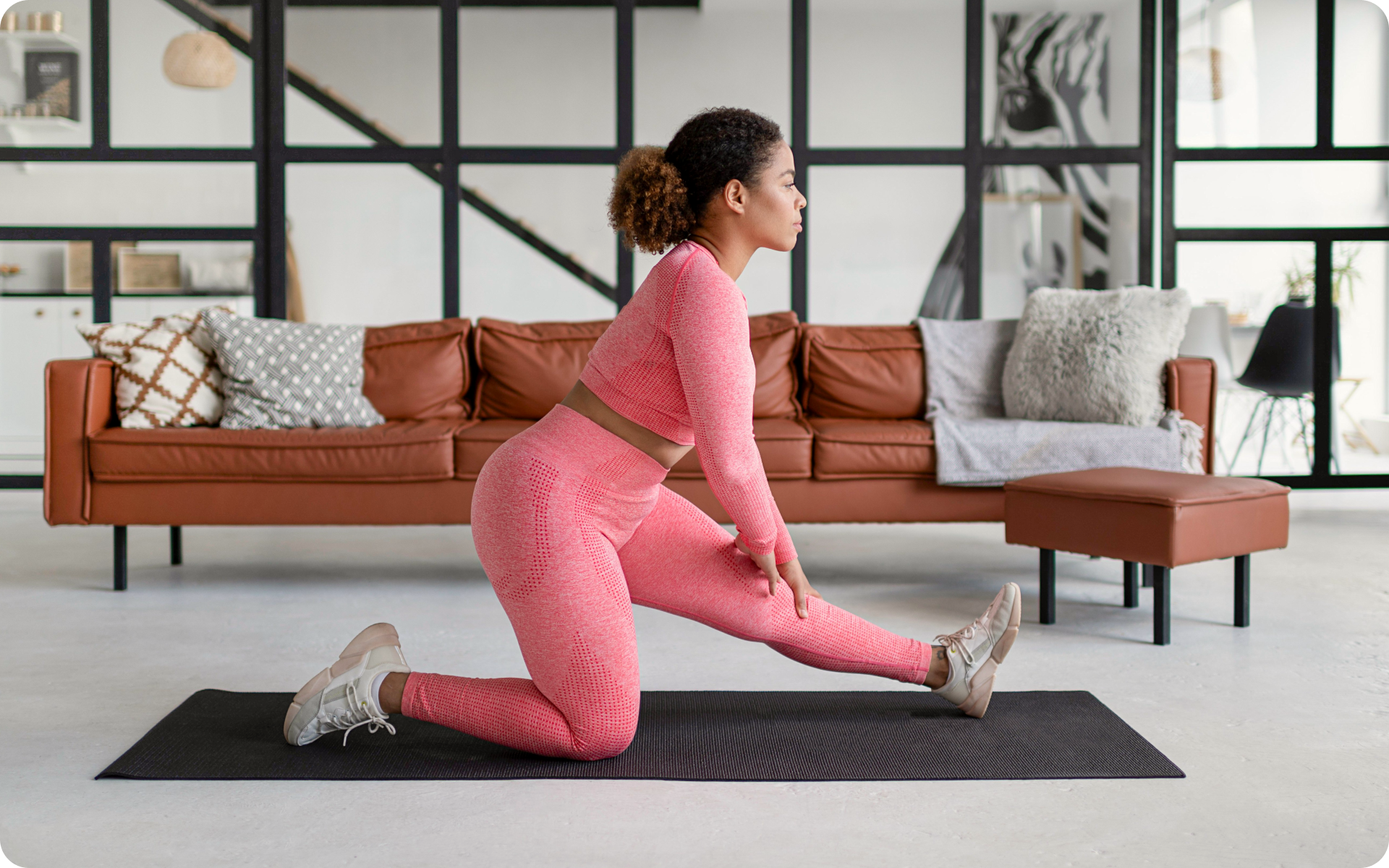“If I could just burn some calories doing nothing.” We bet you’ve had this thought innumerable times. Well, your body does burn calories even when at rest. How does that happen? Basic functions like cell functioning, breathing, and blood circulation need energy. Therefore, on those rare, lazy Sundays where all you do is sit on the couch and binge-watch your favorite shows, your body is usually very busy. It is exciting, almost exhilarating, knowing that your body burns off calories even when all you are doing is breathing. Do you want to know how many calories you burn doing nothing? Note that factors such as how much sleep you get at night, your weight, and your metabolism rate can influence the number of calories you burn at rest. That said, read on to find out how many calories you burn a day doing nothing.
Resting Metabolic Rate
To understand what Resting Metabolic Rate is, you first need to know what metabolism is. Metabolism is the sum of all chemical reactions involved in maintaining the living state of cells and the organism as a whole (20). Simply put, it is the process by which your body converts the food you eat into energy for daily activities.
Resting Metabolic Rate (RMR), also called Resting Energy Expenditure, is the rate at which your body burns energy when it is entirely at rest (11). It is the number of calories you burn doing nothing. This process is not to be confused with the Basal Metabolic rate (BMR), which is the number of calories you burn while performing essential life-sustaining functions such as breathing, cell production, and blood circulation (3).
The two numbers are similar but not exactly the same. In addition to this, RMR is a precise estimate of BMR and is also sufficient and accurate enough to calculate and determine your daily calories.
It may be hard to point out the median resting metabolic rate outside of a clinical setting. However, women’s average resting metabolic rate requires around 1400 calories, while men’s average requires around 1600 calories (11).

Factors That Influence Resting Metabolic Rate
Several factors influence your Resting Metabolic Rate. They include:
Gender
Women have a lower resting metabolic rate compared to men. This may be explained by the increased body fat present in women, which takes less energy to maintain than muscle tissue. Men have a higher absolute RMR (14).
Weight
An increase in weight leads to an increase in RMR, while weight loss lowers it. If you are overweight, your body uses up more energy to complete basic functions like breathing (7). Overweight people usually have a higher RMR.
Age
After the age of 20, your resting metabolic rate will slowly begin to drop. This is why most people add weight as they grow older. In addition to this, you lose more muscle which further lowers the number of calories you burn while resting (2).
Body Fat % And Muscle Mass
A reduced overall body fat percentage coupled with building muscle will positively impact your resting metabolic rate. The more muscle you have on your body, and the less fat, the higher your metabolic rate (10).
Temperature
Both your internal body temperature and that of the environment you are in (external) impact your resting metabolic rate. To illustrate, when you have a fever, you will burn more calories resting (23). This is also the case when it’s cold outside, and you start shivering to generate heat (6).
Thyroxine
If your thyroid gland is underproductive, your RMR is likely to reduce significantly. Thyroid hormones such as thyroxine affect your metabolism and your weight (21).
Thyroid hormones increase adenosine triphosphate (ATP) production, which is the primary energy chemical in your body (19). An issue with your thyroid gland could mean a reduction in your ATP production rate. This will, in turn, reduce your RMR.
Note that some of these factors, such as weight, muscle mass, and body fat percentage, are somewhat within your control. You can use them to your advantage and keep your resting metabolic rate at a healthy level.
Lean and toned up body isn’t just a far-fetched fantasy. Check out the BetterMe app and watch it propel your weight loss journey into high gear!
Can You Change Your RMR?
Are you wondering if you can lower or increase your RMR? Well, if you change your body weight, your resting metabolic rate will also change. Plus, if you have more muscle mass, your RMR also increases. However, other than these two factors, you can’t really change your RMR.
Even then, you can still work on your overall body metabolism and change it. Apart from your resting metabolism rate, several other factors affect the number of calories you burn daily.
Other Factors That Affect The Number Of Calories Burned Daily
Thermic Effect Of Food (TEF)
Do you know that you use energy to chew, swallow, and digest food? Although it makes up for a negligible part of your total energy requirement, it still does contribute to the number of calories you burn (24).
How does this affect the calories you burn a day doing nothing? Food consumption accounts for about 10% of your daily energy expenditure. The consequence of this is an increase in your RMR. If you are into fitness, you may want to choose the kind of foods you eat based on their thermic factors. For example, fats have the lowest thermic factors of about 0 to 3% of the energy consumed, carbohydrates follow closely with a thermic effect of between 5 to 10%, and Proteins carry the day, having a high thermic effect of 20 to 30% (24).
Non-Exercise Activity
This includes all the calories you burn doing a basic movement, such as walking from your couch to the washroom or carrying groceries from the car to your house.

How Many Calories Do I Need?
Now that you’ve understood how your resting metabolic rate works, you may be wondering how many calories you need to lose weight. That, and how many calories you need to eat in a day. To know this, you have to monitor and track your calorie consumption.
Maintaining a healthy metabolic rate and losing weight at the same time requires you to be strict on what you eat and, sometimes, when you eat. Fortunately, there are ways you can monitor your calorie consumption and calculate your daily food needs.
There are three ways to determine the number of calories you need. They are:
- Physical activity
- Basal metabolic rate
- Thermic effect of food
Read More: How Many Calories Should A Pregnant Woman Eat? The Truth Behind “Eating For Two”

How Many Calories Should You Eat In A Day?
To achieve and maintain a healthy weight, you need to be more careful of the number of calories you consume. This starts with you eating a balanced diet. Keep in mind that consuming the required number of calories helps you stay healthy and boosts longevity (15).
The recommended calorie intake varies depending on sex and age.
Adults
The proposed calorie intake for adult females ranges from 1600 calories to 2200 calories per day. Men have a higher figure, ranging from 2000 calories to 3200 calories per day (5).
The figures have a wide range to cater to active individuals and those who lead sedentary or active lifestyles. Of course, an active lifestyle will need you to consume more calories than a less active one.
Teens
Adolescence comes with a lot of changes in the body, and hormones are all over the place. The recommended amount of calories is enough to cater to these changes. An adolescent girl will need 2200 calories daily, whereas an adolescent boy will need 2500 to 3000 calories daily (16).
Children
Depending on how active they are, children between the ages of 2 and 3 years need between 1000 to 1400 calories each day (16).
The calorie intake range increases from the ages of 4 to 8. They will need between 1200 calories to 1800 calories for girls and about 2000 calories for boys. From 9 to 13 years of age, girls will need between 1400 to 2200 calories daily, whereas boys need 1600 to 2600 calories daily.
Looking for a way to break the vicious cycle of weight loss and tone up all the jiggly parts? Watch the extra pounds fly off and your muscles firm up with the BetterMe app!

How Many Calories Do You Need To Lose Weight?
Do you want to shed off some extra pounds but don’t know where to start? You can start with what’s on your plate. The number of calories you consume daily has a significant impact on your weight. Therefore, to lose weight, you need to adjust.
To lose weight, you need to lose more calories than you consume.
There is no standard healthy weight since your ideal body weight is dependent on your age, height, sex, and, sometimes, genes. Therefore, to know how many calories you need to lose weight, you have to understand how to calculate your daily food needs.
Once you know how many calories you need to eat to lose weight, it becomes more straightforward. It also makes it easier for you to work on your body goals by reducing or increasing the number of calories you take, reducing portion sizes, and opting for low-calorie foods.

How To Calculate Resting Metabolic Rate Calories?
The most accurate way to know your RMR is to visit a licensed nutrition clinic. Here you will breathe into a device for ten minutes. This is because a lot of CO2 produced during respiration leaves your body by mouth.
Nonetheless, while at home, you can use the RMR calculator to help you answer the question, “how many calories do you burn a day doing nothing?”.
There are two ways of calculating your RMR. They are:
- Using the modified Harris-Benedict Formula
- Using the Mifflin-ST Jeor Formula
Modified Harris-Benedict Formula
The original Harris-Benedict Formula was created in 1918 and then later modified (22). The modifications to the formula allow us to find the sum of calories that are burned during digestion. Note that this equation is used to calculate both RMR and BMR.
Here is the Harris-Benedict Equation:
- For women:
- RMR/BMR= 447.593 + (9.247 × weight in kg) + (3.098 × height in cm) – (4.330 × age in years)
- For men:
- RMR/BMR=88.362 + (13.397 × weight in kg) + (4.799 × height in cm) – (5.677 × age in years)
Mifflin-ST Jeor Formula
This formula was created in 1990 and is believed to provide a more valid and accurate estimate of your RMR (8).
Here is the Mifflin-ST Jeor formula:
- For women:
- RMR=(10 × weight in kg) + (6.25 × height in cm) – (5 × age in years) – 161
- For men:
- RMR=(10 × weight in kg) + (6.25 × height in cm) – (5 × age in years) + 5

Potential Errors While Calculating RMR
Both formulas assume that people of the same age, height, gender, and weight will have or have the same RMR. This is a huge assumption and undoubtedly incorrect. Your lean body mass is always different from the next person, regardless of whether you have identical height, weight, or are of the same gender (12).
In addition to this, both formulas can have rather significant errors. For instance, the Mifflin-St Jeor Formula has demonstrated an accuracy of within 10% of actual RMR. On the flip side, the Harris-Benedict formula can have an error margin as high as 36%, especially in obese individuals (26, 25, 1). So understand that these are just an estimate and won’t be 100% accurate.
Read More: Metabolic Age: What Is It And What Does It Say About Your Health?
How To Calculate Your Active Energy Expenditure?
The amount of energy you need to carry out physical activities such as daily activities, exercising, and digesting food is called active energy expenditure. This energy is measured in calories.
Your Total Daily Energy Expenditure (TDEE) is the number of calories you burn each day. If you are looking to lose weight, you have to ensure that your energy intake is balanced with the energy expenditure.
The total daily energy expenditure varies from one individual to another. This is because it is dependent on body size, genetics, body composition, activity level, and sex. You don’t expect the active energy expenditure of a senior sedentary woman to be equal to that of an active young man.
So, how do you calculate your active energy expenditure? To make this calculation, you have to consider your Basal Metabolic Rate (BMR) and your activity level.
Therefore:
Energy expenditure=BMR*Physical Activity Level (PAL) (17).
This formula provides an estimate of your total daily calorie burn and is dependent on the data you provide. On that account, your daily expenditure may vary. Once you have this figure (energy expenditure), you can determine how many calories you burn in a day by doing nothing, whether you are a man or woman.

Why Calories Matter?
If you need to lose weight, then it makes sense to count your calories. Even then, maintaining a healthy lifestyle is essential, so whether you count your calories or not, you need to ensure that you consume just enough.
Losing weight requires you to create a calorie deficit. You need to eat fewer calories than you burn. This is because your body stores up extra calories to be used up in the future. Some of it is stored in your muscle as glycogen, but most of it is stored as fat. Yet, excess fat is what you are trying to get rid of. So, you see, eating more calories than you burn causes you to gain weight while eating fewer calories than you need results in weight loss (18).
Knowing how much you need to eat is just as important as knowing what you eat. You cannot assume the calorie content on your diet, as it directly impacts your weight. It is not always enough to switch from a high-carb diet to being a vegan to lose weight. Some of these vegan meals have high-calorie contents, which will likely frustrate your weight loss journey (13, 4).
Knowing your RMR, daily energy, active expenditure, and dietary needs is helpful since it helps you know how many calories you need and how much you should consume.
The Bottom Line
Your body is a complex creation, and you need to be actively involved in taking care of it. The phrase “garbage in, garbage out” applies here as well. The number of calories you consume plays a significant role in how heavy you get. To be safe, ensure the number of calories in is lesser than the number of calories out.
DISCLAIMER:
This article is intended for general informational purposes only and does not address individual circumstances. It is not a substitute for professional advice or help and should not be relied on to make decisions of any kind. Any action you take upon the information presented in this article is strictly at your own risk and responsibility.
SOURCES:
- Accuracy of Predictive Equations for Resting Metabolic Rates and Daily Energy Expenditures of Police Officials Doing Shift Work by Type of Work (2012, ncbi.nlm.nih.gov)
- Aging, Resting Metabolic Rate, and Oxidative Damage: Results From the Louisiana Healthy Aging Study (2009, ncbi.nlm.nih.gov)
- Basal metabolic rate: history, composition, regulation, and usefulness (2004, pubmed.ncbi.nlm.nih.gov)
- Body composition and hormonal responses to a carbohydrate-restricted diet (2002, pubmed.ncbi.nlm.nih.gov)
- Calories (2020, ncbi.nlm.nih.gov)
- Cold-induced thermogenesis in humans (2016, ncbi.nlm.nih.gov)
- Compare the resting metabolic rate status in the healthy metabolically obese with the unhealthy metabolically obese participants (2016, sciencedirect.com)
- Comparison of predictive equations for resting metabolic rate in healthy nonobese and obese adults: a systematic review (2005, pubmed.ncbi.nlm.moh.gov)
- Effects of core temperature, skin temperature, and inter-beat interval on resting metabolic rate measurements in thermoneutral conditions (2019, pubmed.ncbi.nlm.nih.gov)
- Effects of Increased Muscle Mass on Resting Metabolic Rate (2011, clinicaltrials.gov)
- Examining Variations of Resting Metabolic Rate of Adults: A Public Health Perspective (2014, ncbi.nlm.nih.gov)
- Influence of distribution of lean body mass on resting metabolic rate after weight loss and weight regain: comparison of responses in white and black women (2003, pubmed.ncbi.nlm.nih.gov)
- Is a Calorie Really a Calorie? Metabolic Advantage of Low-Carbohydrate Diets (2004, ncbi.nlm.nih.gov)
- Is resting metabolic rate different between men and women? (2001,pubmed.ncbi.nlm.nih)
- Macronutrients and caloric intake in health and longevity (2015, joe.bioscientifica.com)
- Nutrition in Children and Adolescents (2016, pubmed.ncbi.nlm.nih.gov)
- Physical Activity and Controlling Weight (n.d., k-state.edu)
- Physical activity, food intake, and body weight regulation: insights from doubly labeled water studies (2010, pubmed.ncbi.nlm.nih.gov)
- Physiology, Adenosine Triphosphate (2021, ncbi.nlm.nih.gov)
- Physiology, Metabolism (2020, ncbi.nlm.nih.gov)
- Resting metabolic rate, body composition and thyroid hormones. Short term effects of very low calorie diet (1990, pubmed.ncbi.nlm.nih.gov)
- The Harris-Benedict studies of human basal metabolism: history and limitations (1998, pubmed.ncbi.nlm.nih.gov)
- The metabolic cost of fever (1987, pubmed.ncbi.nlm.nih.gov)
- The Thermic Effect of Food: A Review (2019, pubmed.ncbi.nlm.nih)
- Validation of several established equations for resting metabolic rate in obese and nonobese people (2003, pubmed.ncbi.nlm.nih.gov)
- Validity of predictive equations for resting energy expenditure among Iranian women (2011, pubmed.ncbi.nlm.nih.gov)











